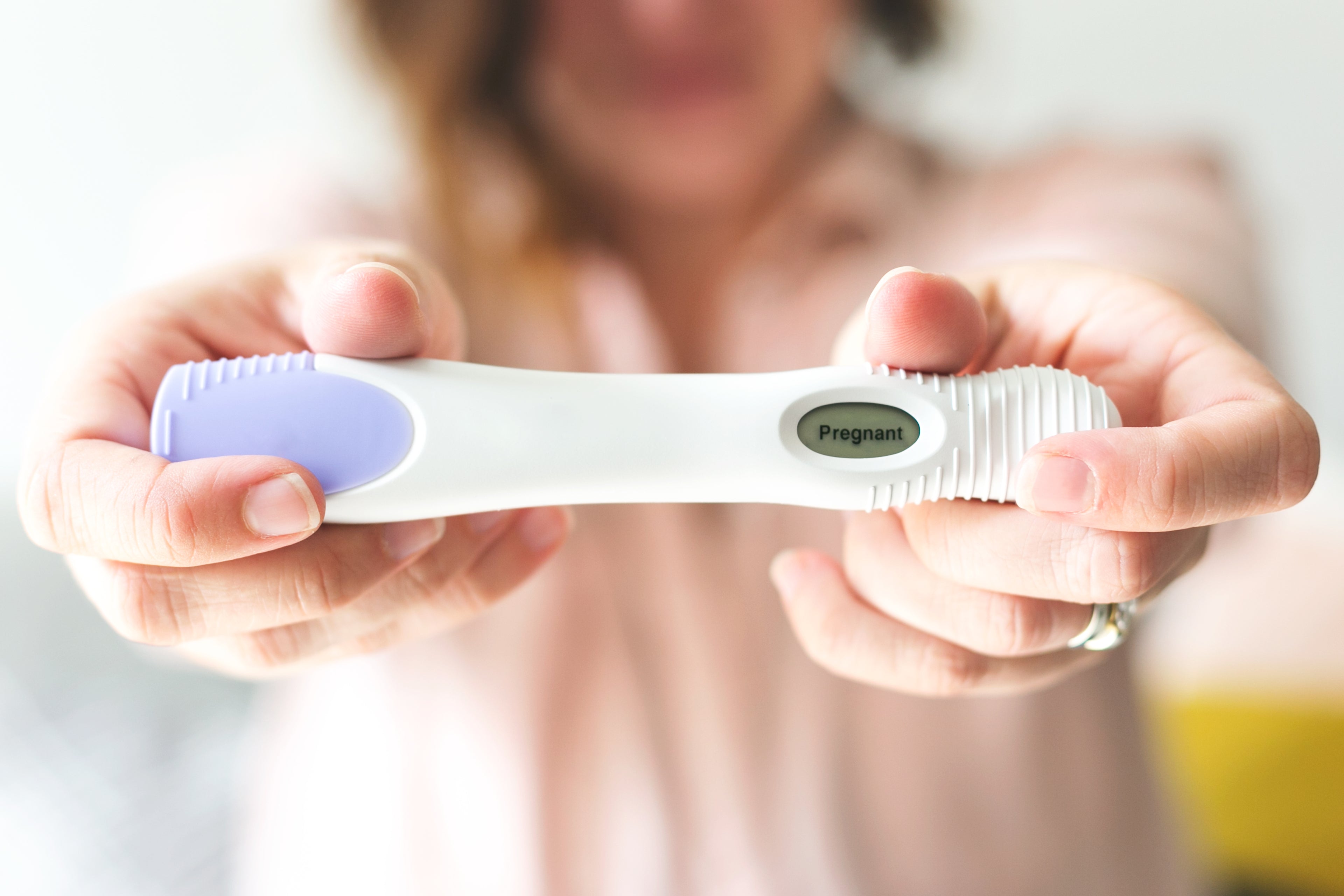Treatment for infertility
Welcome! We pay special attention to fulfilling your desire to have children.
In our fertility consultation, we combine modern medical approaches with compassionate care to support you in every step of this personal and important decision.
We understand the emotional sensitivity of this topic and offer not only medical expertise but also support for your emotional well-being. We support your dream of a family with empathy, respect and individual support.
We look forward to supporting you on your journey to parenthood.
Frequently asked questions
When is the best time for a fertility consultation?
The professional associations in reproductive medicine recommend consulting a fertility specialist if pregnancy does not occur after six months of regular sexual intercourse. For couples over 35, we recommend this step after three months so as not to waste unnecessary time.
It may also be advisable to have a basic measurement of the ovarian reserve carried out at a young age. Using parameters such as AMH and Inhibin B, we can give you a reliable prognosis.
We have a lot of experience with unfulfilled desire to have children and are happy to provide you with advice.
Why am I not getting pregnant?
Around 40% of the causes of missed pregnancies can be attributed to women and just as often to men. In 10% of cases the reasons lie with both partners, while in the remaining 10% no medical cause can be identified.
Modern diagnostic procedures are gentle and have few side effects and enable a precise search for the causes of reduced fertility. In women, the most common reasons, in addition to age, are hormonal disorders, fallopian tube disorders, endometriosis or other anatomical changes.
Men should also have themselves examined early if their desire to have children is unfulfilled. Nowadays, the probability that the man's sperm quality is the cause is almost as high as the woman's causes.
Here, a spermiogram, which is carried out by a competent urologist, provides information as to whether sperm quality is impaired. The causes for this often lie in hormonal disorders, undescended testicles, genetic defects or the man's age.
What are the most common causes of female infertility?
Hormonal disorders:
Changes in hormone levels, such as Polycystic Ovary Syndrome (PCOS), luteal phase defect, or irregular menstrual cycles.
Disorders of the fallopian tubes:
Scarring or blockages in the fallopian tubes can affect the transport of the egg to the uterus. We can clarify this with a special ultrasound examination of the fallopian tubes, the HyCoSy procedure, which we carry out very often in our practice. The HyCoSy examination is carried out on an outpatient basis and without anesthesia.
Endometriosis:
A condition in which tissue that normally lines the uterus grows outside the uterine cavity, which can cause inflammation and scarring and worsen egg quality.
Anatomical changes:
Structural abnormalities of the uterus or reproductive organs can affect conception. These are, for example, myomas, polyps or congenital malformations of the genitals. We can usually determine this through a precise gynecological examination combined with a detailed ultrasound examination.
Ovulation disorders:
Problems with ovulation, such as irregular or absent ovulation.
Alter:
Unfortunately, fertility decreases dramatically with increasing age.
Weight problems:
Being overweight or underweight can significantly affect fertility.
Thyroid diseases:
Thyroid disorders can affect the menstrual cycle and fertility.
Immunological problems:
An overreaction of the immune system against sperm or embryos can lead to difficulty conceiving.
Genetic factors:
Some genetic abnormalities can affect reproductive health.
What lifestyle changes can improve fertility?
Nutrition:
A balanced, wholesome diet with sufficient vitamins, minerals and antioxidants is important for reproductive health.
Weight:
Being overweight or underweight can disrupt hormonal balance and affect fertility.
Alcohol and nicotine consumption:
Excessive alcohol consumption and smoking cigarettes can impair fertility in both men and women.
Physical activity:
Excessive or lack of physical activity can affect the menstrual cycle and lead to ovulatory disorders.
Stress management:
Chronic stress can disrupt hormonal balance and have a negative impact on fertility.
Dealing with environmental toxins:
Exposure to environmental toxins, pesticides and chemicals can affect fertility.
Sexually Transmitted Infections (STIs):
Untreated STIs can cause inflammation in the reproductive tract and affect fertility.
Sleeping habits:
Adequate and quality sleep plays a role in regulating hormones that affect fertility.
Caffeine consumption:
Excessive consumption of caffeine can affect fertility.
It is important to note that these factors may affect each individual differently and there is no universal rule.
What role does age play?
Age plays a significant role in fertility in women. Here is some detailed information:
Decreasing ovulation rate:
The ovulation rate, or a woman's ability to release eggs, decreases with age. In the early 20s, the monthly ovulation rate is around 30-40%, while in the late 30s it can drop to around 15-20%.
Poorer egg quality:
The quality of the eggs deteriorates significantly with increasing age. Women in their 20s are less likely to have an egg with chromosomal abnormalities than women in their 30s or 40s.
Decreasing pregnancy rate per cycle
In your early 20s, the chance of getting pregnant per cycle is about 25-30%. In the late 30s, this probability drops to about 15%, and in the 40s it is only about 5%.
Higher miscarriage rate
The risk of miscarriage increases with age. In women under 30, it is around 10-15%, while in women over 40 it can rise to around 30-50%.
Time until pregnancy occurs
The average time it takes to get pregnant increases with age. In your 20s it can last on average 4-6 months, while in your 30s it can take around 6-12 months and in your 40s it can often last longer.
These numbers are intended as general guidelines and may vary from person to person. It is important to emphasize that men also experience age-related decline in fertility, although it generally begins later in life than women.

"We help you on the way to your baby"
so we can help you
Gynecological examination and cycle history
In a detailed initial consultation in our fertility consultation, we find out more about your desire to have children, previous measures and relevant details such as cycle regularity, pain during your period and any previous illnesses. Your personal situation and any existing stress will also be examined.
This is followed by a precise gynecological examination for the early detection of endometriosis, fibroids, polyps or ovarian cysts. Additional information can be obtained from previous gynecological examinations and further examined by us using ultrasound.
The comprehensive basic ultrasound examination enables a detailed representation of the female genital organs, including uterine position, size, and possible obstacles to implantation.
Hormone analysis
In addition to the female sex hormones, other hormones, such as thyroid hormones, can also play a role in the unfulfilled desire to have children. The diverse effects of our hormones can have a significant impact on fertility. Depending on the previous history, an examination may be necessary for a possible increased tendency to thrombosis, as this can potentially affect the implantation of the egg in the uterus.
Our hormone diagnostics are carried out after an uncomplicated blood sample at our competent partner laboratory. The results will be discussed with you in detail and, if necessary, appropriate therapy will be initiated.
Examination of the fallopian tubes with ultrasound (HyCoSy)
HyCoSy (hysterocontrast sonography) is a gentle method to check the patency of the fallopian tubes, which can be the cause in every 4th to 5th couple with an unfulfilled desire to have children.
Using specialized ultrasound in conjunction with a natural foam, the fallopian tubes are viewed in detail, without the previously common radiation exposure of fallopian tube X-rays (HSG). In contrast to surgical laparoscopy, HyCoSy is non-invasive and does not require anesthesia.
The examination takes place between your period and ovulation. After visualizing the cervix, a thin catheter is inserted and, under ultrasound control, the foam is carefully flushed into the uterine cavity. We can then check live whether the fallopian tubes are patent. Douching often loosens small adhesions, which improves the patency of the fallopian tubes and increases the chances of pregnancy.
In our experience, surgical laparoscopy only makes sense if there are specific suspicions, adhesions or endometriosis.
Spermogram
The central test for determining male fertility is the spermiogram. The ejaculate is obtained through masturbation after a two-day waiting period. This serves to standardize the results and optimize sperm quality.
The central parameters when assessing sperm quality are the concentration per milliliter, the total sperm count, the proportion of live sperm and motility. In addition, pH value, ejaculate volume and sperm morphology are assessed.
The WHO norm values require a sperm concentration of at least 15 million/ml, a total sperm count of at least 39 million per ejaculate, and a motility of 32% or more. 4% of the sperm must have normal forms.
It is advisable to carry out at least two spermiograms as the values can vary greatly. Health insurance companies often require two spermiograms twelve weeks apart.
We can recommend competent urologists from our network to carry out a spermiogram.
Cycle monitoring and triggering ovulation
Use collapsible tabs for more detailed information that will help customers make a purchasing decision.
Ex: Shipping and return policies, size guides, and other common questions.
Intrauterine Insemination (IUI)
Intrauterine insemination (IUI) is a reproductive medical procedure in which sperm are introduced directly into the uterus to increase the chances of pregnancy. Indications are a compromised spermiogram, problems with the cervix or unclear infertility.
An absolute prerequisite for insemination is a prior examination of the fallopian tubes with, for example, HyCoSy.
Process of intrauterine insemination (IUI):
- Sperm preparation: First, the sperm are carefully prepared. This process separates viable and motile sperm from other components of the ejaculate.
- Determination of ovulation: The time of insemination is carefully adjusted to your ovulation. This can be done through monitoring the menstrual cycle, ultrasound scans or the use of ovulation tests.
- Preparation of the woman: In some cases it may make sense to take medication such as Clomiphene or Letrzole to regulate ovarian activity and improve the chances of successful fertilization.
- Insemination: The doctor inserts the prepared sperm directly into the uterus using a thin catheter. This process is painless and similar to that of a gynecological exam.
- Aftercare: After the insemination, you will stay with us for a short period of time for observation. You can then return to your normal activities.
Chances of Intrauterine Insemination (IUI):
The chances of IUI success can vary and depend on several factors, including the cause of infertility, the woman's age, and sperm quality. In general, the success rate per cycle is around 10-20%.
Factors that can influence the chances of success:
- Age of the woman
- Cause of infertility
- Quality of sperm
- Number of IUI cycles already performed
It is important to note that the success of insemination varies from couple to couple. Normally 80% of pregnancies occur within the first 3 inseminations, so we carry out a maximum of 3 inseminations. If pregnancy does not occur, we will refer you to a competent fertility center for IVF/ICSI therapy.
Our patients say

We are happy to advise you
Book an appointment online.
